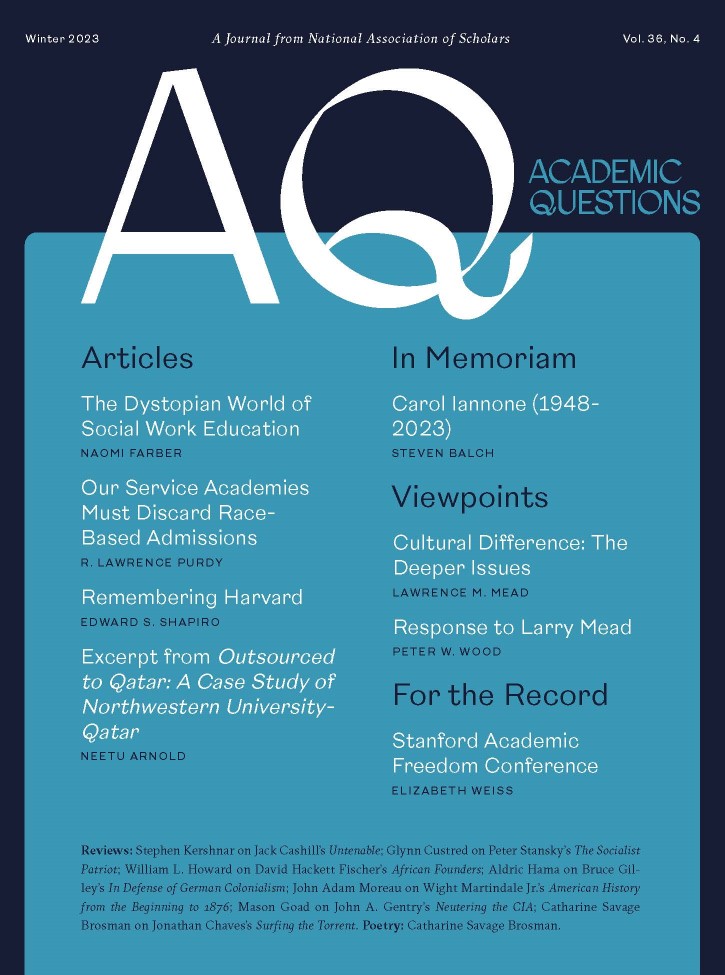The Socialist Patriot: George Orwell and War, Peter Stansky, Stanford University Press, 2023, pp. 150, $14.00 softcover.
Of George Orwell’s many writings (journalism, essays, literary criticism, memoires, fiction, and poetry) his Nineteen Eighty-Four is the most remembered: a dystopic novel in which he describes how the world would look if the dictatorship of the Soviet Union in the 1940s were to spread and become the norm. The novel was published in 1949, but as Peter Stansky says in Socialist Patriot: George Orwell and War, Orwell today “is more alive in our minds than he had been in his lifetime,” for “the steady advance of technology is making the world ever more ‘Orwellian.’” The relevance of the novel is also seen in Orwell’s recognition of what we call today “fake news” and “alternative facts,” and in the intentional change in language, directed from above, designed to control the thought process of the people, as when the Ministry of Propaganda becomes “the Ministry of Truth,” and the Ministry of War is the “Ministry of Peace,” a process which has come to be known as an “Orwellian inversion.” In fact, that expression and others such as “Orwellian,” “Newthink,” and “Doublethink” have become part of the language which makes Nineteen Eighty-Four seem prophetic.
Stansky is the author of two previous books about this now famous author, The Unknown Orwell, published in 1972, and Orwell: The Transformation published in 1979. The purpose of this latest, short book is to demonstrate how Orwell was influenced in his thinking and in his writing by wartime events: the First World War, the Spanish Civil War, the Second World War, and the Cold War. The Socialist Patriot is useful background reading for anyone studying the work of George Orwell, especially those works which are relevant to contemporary politics and social conflicts.
He begins with a brief summary of Orwell’s early life. He was born Eric Blair in 1903 in Motihari, Bengal which at that time was a part of the British Empire, where his father was employed as a sub-deputy agent of the Opium Department of the British Civil Service. His mother, although born in England, had spent much of her life in Burma, which was then ruled by Britain, where her father ran a successful business mostly in tea and teak. The family’s social status was thus of the English establishment, but, as Stansky describes it, on a fairly low level.
As a child, Blair’s mother brought him to England, where he was raised and went to school. He would later take the pen name George Orwell, partly to avoid embarrassing his parents by what he was writing, and partly as a hedge against failure. He also felt that his real name was too straightlaced.
Between the ages of eight and thirteen he attended St. Cyprian’s preparatory school for boys. His time there was unhappy, as he later described in an autobiographic essay titled Such, Such Were the Joys, which gives a very negative picture of the school. From there he went to Eton where he spent his adolescence. Stansky describes Eton as the most famous of the English public schools, which was designed to train young men to serve the state and the empire. Orwell’s last two years at St. Cyprian’s were the first two years of the First World War (1914-1916), and by the time he graduated from Eton in 1921 the war had ended. During the war years 1914 to 1918 patriotism ran high throughout the country, a sentiment which Stansky describes as “intense and rather primitive.” In this vein both schools prepared the boys for later military service. In St. Cyprian’s it was in the form of the Cadet Corps and at Eton the Officer’s Training Corps, a training unit which supplied young officers for the army who, as Stansky says, were the most likely to be killed on the front. Attending those schools in the war years greatly influenced Orwell’s later life.
After graduation from Eton Orwell’s family did not have the means to send him to Oxford or Cambridge, nor were his grades high enough to procure a scholarship, so he volunteered instead for service to the empire as a member of the Imperial Police in Burma, a profession, as he later wrote, for which he was unsuited. His time in Burma soured him on imperialism which he described in two essays based on his personal experience, “Shooting an Elephant” and “A Hanging,” and in his 1934 novel Burmese Days, which shows the dark side of colonialism. From then on Orwell was an anti-imperialist and was also becoming interested in socialism. After resigning from the Imperial Police, he set out to see what life was like in the working class, and unlike other socialist intellectuals he spent time living among them, an experience which he described in Down and Out in London and Paris (1933) and in The Road to Wigan Pier (1936). After that he continued moving leftward in what Stansky describes as “an idiosyncratic way” which “combined his vivid, notorious denunciation of many middle-class socialists, as he himself was.” The next war that affected his life and writing was the Spanish Civil War (1936-1937), which Stansky says was the most important war in shaping Orwell’s literary direction. “The Spanish Civil War was for him [Orwell] the most important war for shaping his ideas and making him an ever more powerful writer,” Stansky writes. “Indeed one might say it was what made him a great writer.” (52)
The war was fought between the Republicans composed of leftist factions (anarchists, socialists, Communists), and the Nationalists who were backed by Monarchists and Traditionalists. General Franco became their leader. The Soviet Union backed the Republicans, and Fascist Italy and Nazi Germany backed the Nationalists. The Soviets under Stalin opposed the Trotskyites in Spain as elsewhere which led to the conflict in Catalonia (described in Homage to Catalonia) from which Orwell fled. Stansky says, “His experience in the war was absolutely crucial in forming both the positive and the negative ideas that shaped his own best novels, Animal Farm and Nineteen Eighty-Four.” (49)
The appalling death toll of the First World War, both military and civilian, and the drain on the economies of Europe, took their toll leaving many in the postwar countries with a sense of disillusion, what has been described as the loss of innocence. That was also a time when many in Western Europe sharply turned away from nationalism, a force which had propelled the warring nations on the battlefield and on the home front. For example, in 1933 the Oxford Union Society passed what would be known as the Oxford Oath, or Oxford Declaration, that stated, “This House will under no circumstances fight for king and country.” This sense of disillusion and the rejection of many pre-war assumptions was also expressed in literature: in Germany in Erich Marie Remarque’s All Quiet on the Western Front, in France in Henri Barbusse’s Under Fire, in England in the war time poetry of Wilfred Owen and Siegfried Sassoon, and in the postwar writing in England and America of Ford Madox Ford, Parade’s End, Robert Graves, Goodbye To All That, Ernest Hemingway, A Farewell to Arms, and others.
But a brighter future was envisioned in the ideologies of the left, which promised that by tearing down capitalism a more equitable society could be erected with greater economic welfare for all. Many became socialists, anarchists, or Communists. For example, at the end of the First World War, and for some years afterwards, Eton went through what was called its “Bolshie” period, and some of Orwell’s classmates became leading members of the Communist Party in Britain. A part of this international movement was the Communist International, also called the Comintern, which was formed in 1919 and directed from Russia in order to promote Communism world-wide.
The Civil War in Spain attracted the attention of leftists, for it was a conflict in which fascists and communists clashed. Nazi Germany and fascist Italy supported a coalition of traditionalists, monarchists, and nationalists, and the Soviet Union backed the Second Republic, which was composed of a coalition of socialists, Communists, and anarchists. The Western democracies, however, took no sides so that the war became a battle ground of the two opposing ideologies. Leftists from Spain and abroad came to join the struggle in volunteer militia organizations. One of those was the POUM, the Workers’ Party of Marxist Unification (Partito Obrero de Unificación Marxista), made up of anti-Stalinist leftists that included Trotskyists, anarcho-syndicalists, and others. Another was the International Brigade which was strongly supported by the Soviet Union. And volunteers from the United States joined the Lincoln Brigade, which was organized by the Communist International. Orwell wanted to join the International Brigade but he met with no help from the Communists in England, so he joined POUM instead. He later tried to join the International Brigade in order to defend Madrid but he stuck with his comrades in Catalonia.
Stansky says that Orwell had completed his commitment to socialism when he arrived in Barcelona during the short time that the anarchists were in control. The city had drastically changed, for the ordinary class divisions were gone, and the “the working class was in the saddle.” But as the war progressed Orwell’s experience showed him how the socialist ideal could be undermined. Orwell was wounded in a battle and returned to Barcelona where the Stalinist faction was in charge. This was a devastating experience for him, for the Stalinists in Spain were intent on purging the movement of other factions, much as they were in Russia, for this was the period of purges in Moscow. One thousand of Orwell’s comrades were murdered outright; others were imprisoned where they were tortured and killed. Eventually, in 1937, Orwell had to flee for his life. He tells the story in Homage to Catalonia written in 1938.
Orwell retained his commitment to socialism, but in a form which was counter to the totalitarianism. He was not the only one, however, who lost faith in Communism and the promise of the Russian Revolution. Some were disturbed by the purges, an event which became the theme of a novel Darkness at Noon written in 1940 by former Communist Arthur Koestler. Perhaps the most telling blow to the commitment of communists in the West to the party, was the Hitler-Stalin pact in 1939. The two implacable enemies, Nazis and Communists, signed a nonaggression treaty as a part of their plan for dividing up Eastern Europe between themselves. A number of former Communist intellectuals who saw this as a betrayal of their faith published a book in 1949 appropriately titled The God That Failed. Among the authors were Andre Gide in France, Ignazio Silone in Italy, Stephen Spender in England, Arthur Koestler from Hungary, and Richard Wright from the United States. Also included in the book was the American journalist Lewis Fischer, who had not been a member of the party but who had worked as a leftist correspondent in Stalinist Russia and saw first-hand what was happening.
As war clouds gathered over Europe Orwell was not enthusiastic about going to war against Nazi Germany, believing that the war effort might provide Britain the occasion for a fascist regime to emerge at home. He wrote in June 1939 that “what now goes by the name of ‘anti-fascist’ is a thin disguise for ‘jingo nationalism.’” He changed his mind, however, with the Hitler-Stalin Pact in August, and the following month with Britain’s declaration of war against Nazi Germany after the invasion of Poland. Stansky says that at this point Orwell’s patriotism, which had been shaped during the First World War, merged with his democratic socialism, to which he had become committed in Spain, making him ready for war against Nazi Germany. “When the Blitz started in September, it was almost as if he were in Barcelona again,” writes Stansky. (60)
Orwell’s health and age prevented him from going to the front, but his earlier military and police training and his experience in the Spanish Civil War qualified him for service in Home Guard. He was also engaged in publications and on BBC radio supporting the war on the home front.
After the war the two former allies against Nazi Germany, the democratic West and the Communist East, became adversaries in what came to be known as the Cold War, a term which seems to have been coined by Orwell. Communism in the 1930s lost its appeal to the working class and to the intellectuals, who “lost their innocence” and became disillusioned with the betrayal of the promise for a brighter future through Communism. At the same time Soviet subversion was uncovered in the West, which in the United States led to a reaction known as the “Red Scare” or, later, “McCarthyism.” It was at that time of heightened awareness and competition that made Orwell relevant, and which increased his popularity. His 1945 essay “Politics and the English Language,” which exposed the manipulation of language for propaganda purposes, struck a chord with its obvious relevance. In 1952 his Homage to Catalonia was reissued, and his story Animal Farm, first published in 1945, attained an even wider readership.
Animal Farm is a satire on Stalin’s regime in Russia in the form of a fable where animals are figures in the revolution—the villainous pigs, the heroic horse, the cynical donkey. The pigs come to dominate the others and eventually make a pact with the farmers, the former oppressor class, the two merging at the end of the story so that the other animals can no longer tell the difference between the two. Stansky calls Animal Farm “a nicely paradoxical tale” which he describes as “heartbreaking,” where real characters become animals as symbols of the hopes and the betrayals which had characterized the aftermath of the Russian Revolution. “The Cold War made him even more accurately aware of the evils of totalitarianism.”
This was followed by his postwar novel Nineteen Eighty-Four, first published in 1949, which became a Cold War classic and which made Orwell world famous. Both books of fiction, says Stansky—one a fable about past events and the other a vision of the future—have universal appeal and are still relevant. Moreover, Orwell’s work has “made writing about politics and other subjects into art and left us some of the glorious intellectual and literary legacies of the modern age.”
Glynn Custred is professor emeritus of anthropology at California State University, East Bay; [email protected]. Professor Custred is the author of A History of Anthropology as a Holistic Science (2016) and last appeared in our pages in the summer of 2023 with “Disney in the Crosshairs.”
Photo by Nordiah on Adobe Stock













